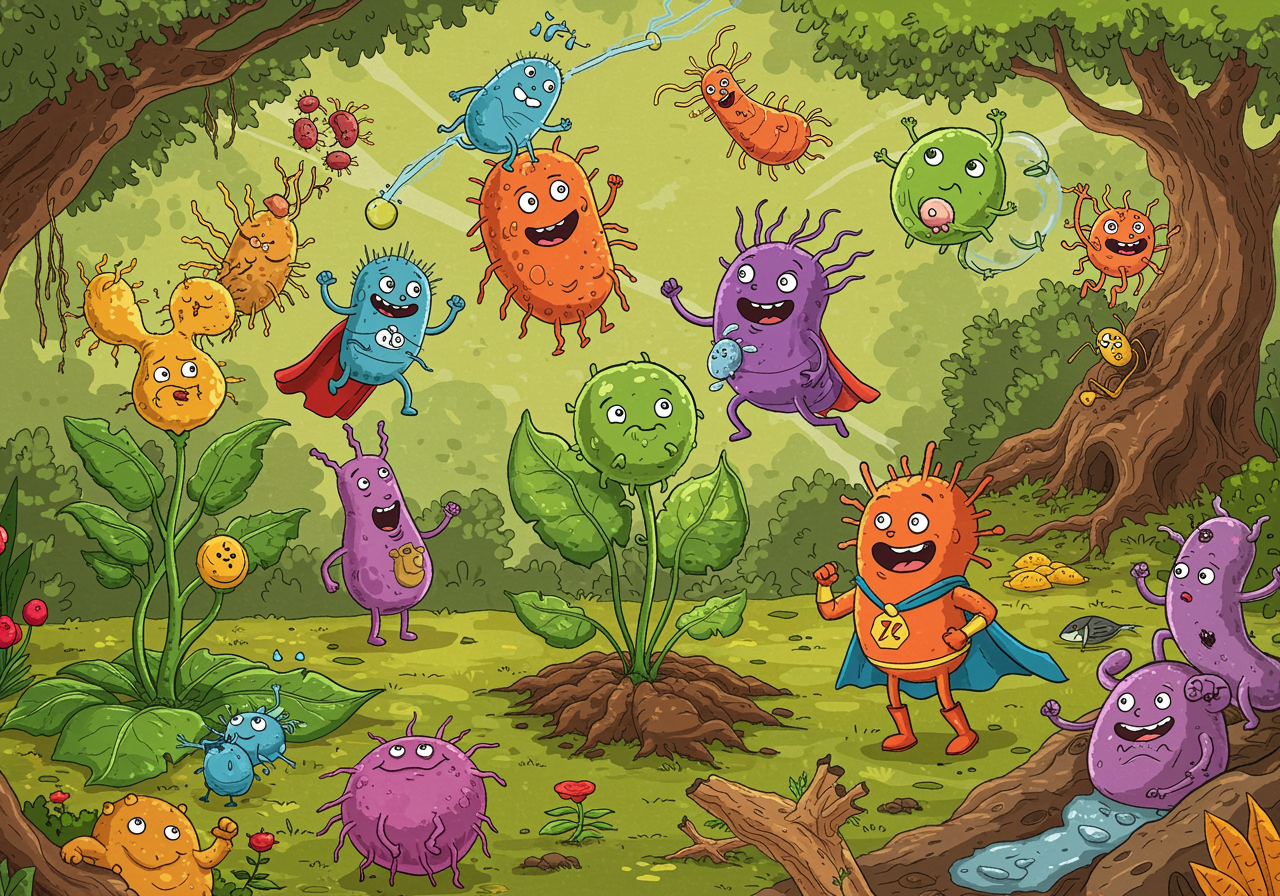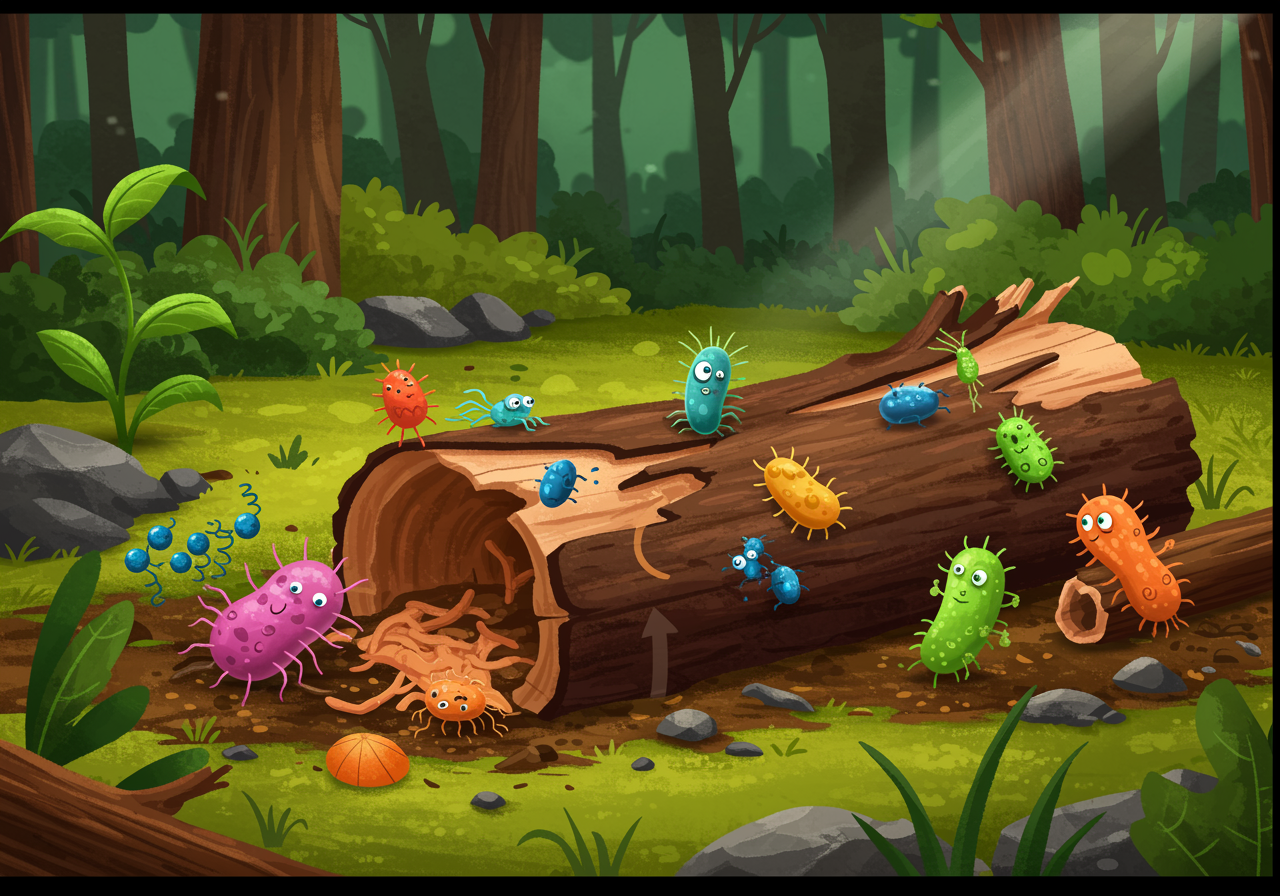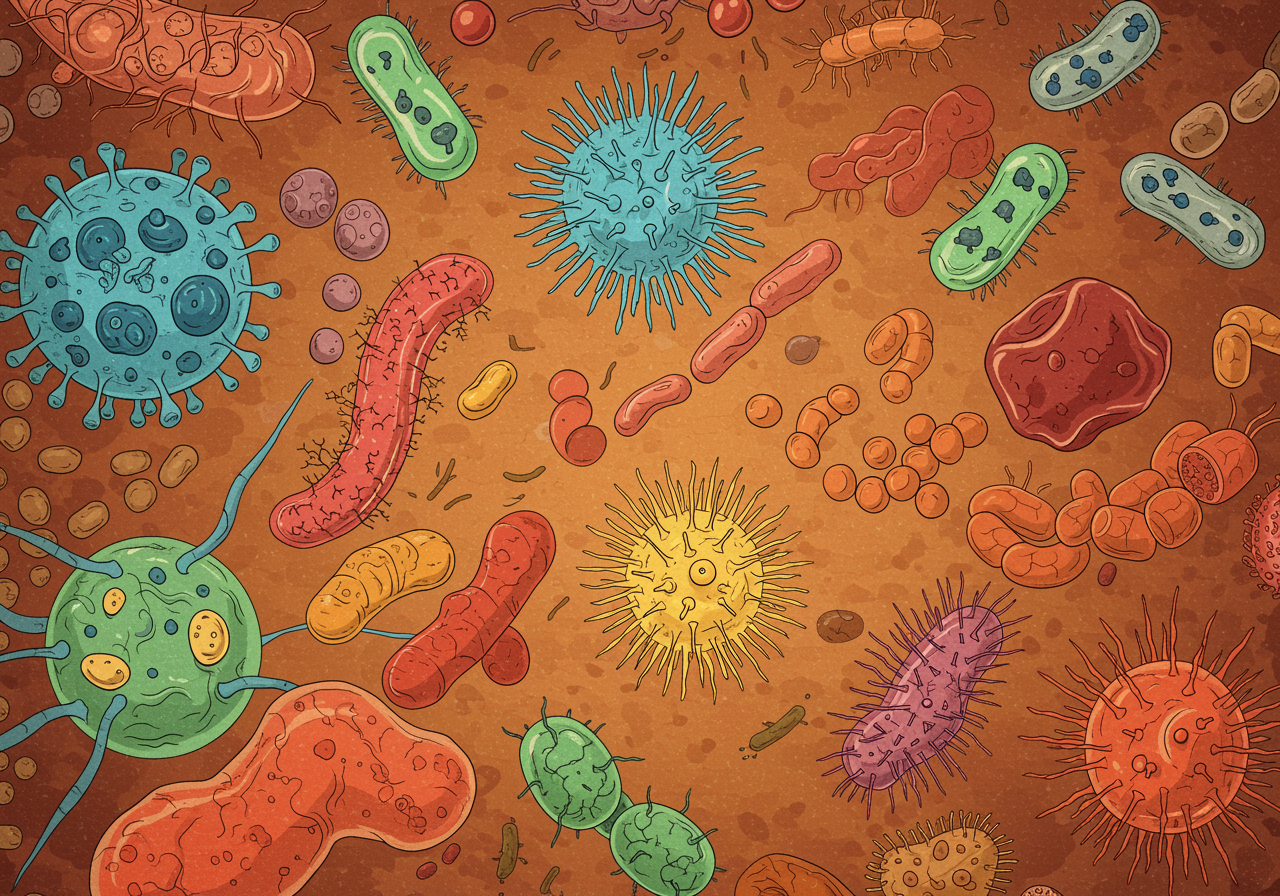The Invisible Heroes: Meet the Tiny Titans Running Our World

Discover how microscopic superheroes keep Earth healthy and help your body thrive
Journey into the amazing world of microbes – the tiniest creatures that quietly run our planet and keep us alive every single day.
Overview
Imagine if superheroes were so small you couldn't see them, but they were everywhere – in your food, in the soil, even inside your body – working 24/7 to keep everything running smoothly. That's exactly what microbes do! These microscopic creatures are like Earth's cleanup crew, recycling team, and health squad all rolled into one. Understanding how these tiny titans work helps kids appreciate the incredible complexity and teamwork happening in nature, right under our noses. It's the perfect topic to spark curiosity about biology, ecology, and how everything in nature is connected.

Understand in 30 Seconds
Get up to speed quickly
- Microbes Are Everywhere: These tiny living things are in soil, water, air, and even inside us. A single teaspoon of soil contains more microbes than there are people on Earth!
- Earth's Recycling Team: Microbes break down dead plants and animals, turning them into nutrients that help new life grow. Without them, Earth would be buried under waste!
- Your Body's Best Friends: Good bacteria in your gut help digest food, make vitamins, and fight off harmful germs. You have about as many microbial cells as human cells!
- Planet Shapers: Microbes help create oxygen we breathe, clean polluted water, and even influence weather patterns through their work in oceans and soil.
Real Life Scenario
Situations you can relate to
Think about the last time you saw a fallen log in the woods. What happened to it? Did it just disappear? That's microbes at work! Imagine if nothing ever decomposed – every leaf, every animal that died, every piece of food waste would just pile up forever. Our planet would be one giant garbage dump! But microbes are like nature's ultimate recycling crew, breaking everything down into simple parts that plants can use again. It's like having millions of tiny workers with microscopic tools, taking apart old buildings (dead things) and using those materials to build new ones (living things). Even cooler? The same process happens in your stomach when you eat – helpful bacteria break down your food and turn it into energy your body can use. Have you ever wondered why some foods make your stomach feel good while others don't? It might be because different foods feed different types of gut bacteria!

Role Play
Spark a conversation with “what if” scenarios
What if you were a microbe living in someone's gut?
- Role play: Take turns being different gut bacteria. One person can be the 'good bacteria' helping digest an apple, while the other acts out breaking down nutrients and fighting off 'bad bacteria' invaders.
What if microbes went on strike for a day?
- Role play: Act out a world where nothing decomposes. Pile up 'garbage' (pillows, clothes) around the room and imagine how quickly everything would stack up without microbes to clean it up.
What if you could shrink down and explore a teaspoon of soil?
- Role play: Pretend to be microscopic explorers discovering different microbes. One person can be a fungus stretching out root-like threads, another can be bacteria breaking down organic matter.
FAQs
Frequently asked questions people want to know
Are all microbes dangerous?
Not at all! Most microbes are harmless or helpful. Only a tiny percentage cause disease. The vast majority are working hard to keep our planet and bodies healthy.
How do we know microbes exist if we can't see them?
Scientists use powerful microscopes that can magnify things thousands of times. They can also study what microbes do by watching how they change their environment.
Can we live without microbes?
Absolutely not! Without microbes, we couldn't digest food properly, plants couldn't get nutrients from soil, and waste would never break down. Life as we know it would be impossible.
Examples in the Wild
See how this works day to day
- Scientists discovered that ocean microbes produce about 50% of the oxygen we breathe, making them as important as forests for keeping our air fresh. (National Geographic)
- Researchers found that certain soil bacteria can help plants grow stronger and resist diseases, leading to better crops without harmful chemicals. (Smithsonian Magazine)
- A 2023 study showed that people with diverse gut bacteria tend to have stronger immune systems and better mental health. (Scientific American)
- Scientists are using specially trained bacteria to clean up oil spills and toxic waste, turning pollution into harmless substances. (BBC Science)
In Summary
What you should know before you start
- Microbes are tiny living helpers that exist everywhere on Earth, from deep ocean floors to inside our bodies
- They act as nature's recycling team, breaking down waste and dead material to create nutrients for new life
- Good bacteria in our gut help us digest food, make vitamins, and protect us from harmful germs
- Without microbes, our planet would be covered in waste and life as we know it couldn't exist
Pro-tip for Parents
You got this!
If your child seems grossed out by bacteria, focus on the helpful ones first! Start with examples they can relate to, like how bacteria help make yogurt, cheese, or sourdough bread – foods they might already enjoy. Emphasize that we're partners with these tiny creatures, not enemies. If they're worried about 'germs,' explain that washing hands gets rid of the few bad ones while keeping the good ones we need.

Keep an Eye Out For
Find these examples in everyday life
- News stories about new discoveries in the gut microbiome and how it affects health and mood
- Environmental stories about using bacteria to clean pollution or fight climate change
- Food science articles about fermentation, probiotics, and how bacteria help make our favorite foods
Explore Beyond
Look up these related research topics
- How do vaccines work with our immune system and microbes?
- What role do fungi play in forest ecosystems?
- How are scientists using bacteria to create new medicines and materials?